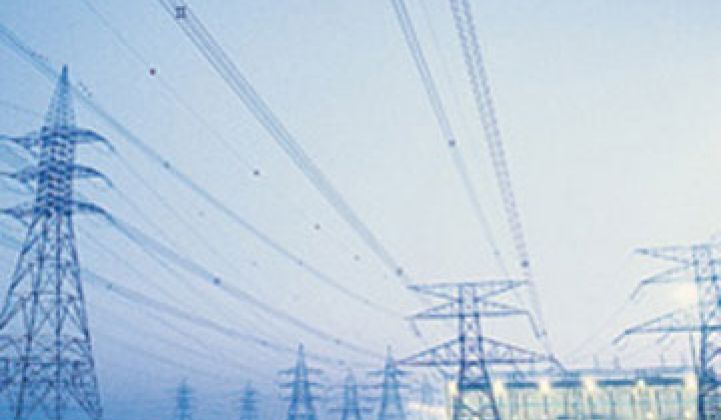Nowhere in the country is the cost recovery and implementation of smart grid more convoluted than in Illinois.
On Wednesday, the Illinois Commerce Commission unanimously approved Commonwealth Edison's request to delay the installation of its smart meters until 2015, which ComEd says is necessary because the commission had reduced the amount of money the utility could charge.
Just last week, the Illinois Senate voted on a resolution that protested the rate cuts that had been imposed by the ICC -- although it is unclear what difference the non-binding resolution would make.
At odds are the legislature’s Energy Infrastructure Modernization Act approved by the full assembly last year, and how the ICC is allowing the state’s large utilities to recover costs of smart grid projects – including smart meters.
Last May, the Illinois Commerce Commission told Commonwealth Edison it had to cut about $100 million from the rates it could expect to collect from customers over the next five years. Some of that money had to do with smart grid, but not all of it. ComEd has also taken the matter to court.
While the rate plan was rejected, the ICC did approve ComEd’s smart grid plan. The final approval of ComEd’s plan came about a month after the ICC rejected the Ameren Illinois smart grid plan altogether.
Essentially, rates will go up for ComEd customers to recover the costs of the investment, but they will not go up as much as ComEd says it needs. The way it stands now, ComEd customers will start paying more in January even though the smart meters will not be installed for two more years, according to the Chicago Tribune. ComEd is still moving forward with other smart grid projects, such as automating some switches on distribution lines.
The savings in smart meters will come from not needing to send meter readers into the field and from reduced outage time by using the meters to better pinpoint where the power is out.
The Chicago Tribune is also reporting that not only will the estimated $187 million in savings from efficiencies achieved through two-way digital smart meter use not be passed on to consumers as soon as hoped, but that the price of the meters, which are being supplied by Silver Spring Networks, is expected to rise by $5 million.
The issue of smart meters saving the average consumer money is a tricky one. Although it is commonly laid out in rate cases, the reality is that those savings will almost never result in far lower bills for customers in the long term.
The problem is that smart meters might give consumers greater insight into their energy use, assuming it comes with a robust delivery method to show people where they’re using energy and how to reduce it, but the minimal savings will most likely be offset by rising utility rates to cover the cost of the investment.
In truth, smart meters, by themselves, will not save significant money for the average utility customer, but rather they will allow for efficiencies so that rates don’t rise as fast or as high as they may have without the technology.
That’s not exactly a tagline the utility can fit on a poster.
Illinois is not the only state grappling with who should allocate funds upfront for technology that will eventually save significant amounts of money. The issue of who gets those savings is also up for debate.
In Maryland, the regulators rejected Baltimore Gas & Electric’s proposal a few years ago, on the basis that the plan’s surcharge to customers was not justified and that it lacked sufficient consumer education. Eventually the plan was approved with a far lower surcharge and more robust consumer offerings. Other state regulators have also pushed back against utilities, such as Hawaii Electric Co., Consumers Energy in Michigan and Duke Energy in Indiana, on how much they can charge upfront.
The ICC’s chairman, Doug Scott, called the delay in Illinois “a way forward.” But the delay of technology while still charging customers -- even less than $2 per month -- will likely build even more resentment amongst the public against the utility than there is already (as can be seen in comment boards in local papers).
This is hardly the last word in the matter, however. David Kolata, executive director at the watchdog group, Citizens Utility Board, told the Chicago Tribune that the approved delay essentially pushes the ball down the road until April, when the utility has to file a progress update with the commission.
While rates will rise in January, so will the stakes for ComEd. Starting in 2013, the utility has to prove it’s meeting performance metrics or pay penalties.



